A Large Sheet Of Muscle Dracula Completo LP (The Trilogy Tapes)
 The British avant-industrial prankster responsible for Wanda Group continues to plumb the demented recesses of his psyche with this new-ish project, the vividly-named A Large Sheet Of Muscle. Dracula Completo is a twenty-six song LP, putting A Large Sheet Of Muscle in contention for the title of The Napalm Death Of Domestic-Experimental Music. I appreciate the brevity of these tracks, and the loose threads that run through them: sparseness, ghostly undertones, tiny up-close sounds, pitch-lowered vocal mutterings. The vocal processing has me thinking of The Shadow Ring’s I’m Some Songs, but Dracula Completo is controlled by someone with a trigger-happy finger on the remote, constantly changing up tracks before any idea is thoroughly examined. I like it this way, the appealing contrast of humdrum sonics and quick-shifting edits. It plays out like an abandoned house with a couple dozen tiny rooms in various states of disrepair, many of which are inhabited by disgruntled ogres shifting their weight under straining couch springs and ready to supply you with their personal grievances if they catch you coming in. A Large Sheet Of Muscle gets its hands dirty in these strange and unkempt zones so you don’t have to.
The British avant-industrial prankster responsible for Wanda Group continues to plumb the demented recesses of his psyche with this new-ish project, the vividly-named A Large Sheet Of Muscle. Dracula Completo is a twenty-six song LP, putting A Large Sheet Of Muscle in contention for the title of The Napalm Death Of Domestic-Experimental Music. I appreciate the brevity of these tracks, and the loose threads that run through them: sparseness, ghostly undertones, tiny up-close sounds, pitch-lowered vocal mutterings. The vocal processing has me thinking of The Shadow Ring’s I’m Some Songs, but Dracula Completo is controlled by someone with a trigger-happy finger on the remote, constantly changing up tracks before any idea is thoroughly examined. I like it this way, the appealing contrast of humdrum sonics and quick-shifting edits. It plays out like an abandoned house with a couple dozen tiny rooms in various states of disrepair, many of which are inhabited by disgruntled ogres shifting their weight under straining couch springs and ready to supply you with their personal grievances if they catch you coming in. A Large Sheet Of Muscle gets its hands dirty in these strange and unkempt zones so you don’t have to.
Apolitiq Now. 12″ (Curious Electricity)
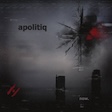 NYC industrial duo Apolitiq has existed since the late ’80s, but sparsely so; this five-song EP is the group’s first release since 1993. These guys are from a pre-Giuliani NYC, back when the filth was still overt and groups like Missing Foundation could wander the evacuated warehouses at will, and their sound tends to exist in that same era. Underground sex-club EBM, Atari Teenage Riot, the tape-trading noise underground and mid-’80s Cabaret Voltaire seem to swirl together here like petroleum by-product in a Lower East Side puddle, if not direct influences of Apolitiq then at least sharing some sonic and cultural connections. These tracks do show signs of existing in the present-day as well, from the AutoTuned vocals that smear through “Breathe” to the spectral post-clubbing reverberations of “Start”, almost Burial-like in their wrenched emotion and smudged appearance. It’s pretty dense stuff, with at least half a dozen layers of sound surging at any given time, which can lead to a muddiness, either intentional or not. Judging from the dystopian imagery, lyrics like “stop / no one owns us” and “keep on living the lie”, and a vaguely Banksy-stylized sense of social uprising, cleanliness isn’t a quality Apolitiq are after.
NYC industrial duo Apolitiq has existed since the late ’80s, but sparsely so; this five-song EP is the group’s first release since 1993. These guys are from a pre-Giuliani NYC, back when the filth was still overt and groups like Missing Foundation could wander the evacuated warehouses at will, and their sound tends to exist in that same era. Underground sex-club EBM, Atari Teenage Riot, the tape-trading noise underground and mid-’80s Cabaret Voltaire seem to swirl together here like petroleum by-product in a Lower East Side puddle, if not direct influences of Apolitiq then at least sharing some sonic and cultural connections. These tracks do show signs of existing in the present-day as well, from the AutoTuned vocals that smear through “Breathe” to the spectral post-clubbing reverberations of “Start”, almost Burial-like in their wrenched emotion and smudged appearance. It’s pretty dense stuff, with at least half a dozen layers of sound surging at any given time, which can lead to a muddiness, either intentional or not. Judging from the dystopian imagery, lyrics like “stop / no one owns us” and “keep on living the lie”, and a vaguely Banksy-stylized sense of social uprising, cleanliness isn’t a quality Apolitiq are after.
Archetype The Ick LP (Knekelhuis)
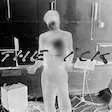 Viennese artist Leonard Prochazka has run through a number of musical aliases in the last few years, many of which were lucky enough to find a home on the Knekelhuis label. He is a member of the fantastic experimental post-punk group Jean-Luc, released an album of experimental electronics as Geier Aus Stahl a couple years ago and now has surfaced as Archetype. Took me a minute to figure that out, seeing as the cover has The Ick in a large font and the album opens with a song called “Archetype”, a trick I haven’t seen since Fuck On The Beach. But as Archetype (and not entirely dissimilarly to Geier Aus Stahl), Prochazka winds his way through nebulous, murky electronics at unhurried speeds. It’s dark enough to brush up against goth, but there’s a playfulness, or at least a lack of uptightness, that shakes some dust off the old aesthetic. “Industrial” is probably a better descriptor, though his rhythms never pummel, grind or imitate heavy machinery; rather, Archetype favors brooding trip-hop rhythms and slinky downtempo grooves that pair interestingly with the swampy low-end melodies. In more than one way, it’s clear that Archetype has given us The Ick.
Viennese artist Leonard Prochazka has run through a number of musical aliases in the last few years, many of which were lucky enough to find a home on the Knekelhuis label. He is a member of the fantastic experimental post-punk group Jean-Luc, released an album of experimental electronics as Geier Aus Stahl a couple years ago and now has surfaced as Archetype. Took me a minute to figure that out, seeing as the cover has The Ick in a large font and the album opens with a song called “Archetype”, a trick I haven’t seen since Fuck On The Beach. But as Archetype (and not entirely dissimilarly to Geier Aus Stahl), Prochazka winds his way through nebulous, murky electronics at unhurried speeds. It’s dark enough to brush up against goth, but there’s a playfulness, or at least a lack of uptightness, that shakes some dust off the old aesthetic. “Industrial” is probably a better descriptor, though his rhythms never pummel, grind or imitate heavy machinery; rather, Archetype favors brooding trip-hop rhythms and slinky downtempo grooves that pair interestingly with the swampy low-end melodies. In more than one way, it’s clear that Archetype has given us The Ick.
Blu:sh Pinky Promise 12″ (Kalahari Oyster Cult)
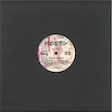 Delectable extended-play of guilt-free Euro techno care of the always dependable Kalahari Oyster Cult. Who else but a European would call it a “pinky promise” instead of a “pinky swear”? These tracks are slick in an early aughts way, full of tidy, melodic bass-lines, upbeat kicks and the shimmering gloss you’d expect to hear on a Sven Väth remix of Madonna’s “Ray Of Light”. The kicker for me is the variety of vocal interjections, from flirtily conversational in an Alexa Dash sorta way (“Fly And Mimi”) to softly cooing (check the hook for “Rave Up”) to digitally-sliced in a manner redolent of Ricardo Villaobos’s “Andruic”. It’s like you’re dead-center in the main room of Amsterdam’s Club Paradiso, pummeled by the insistent, drop-less techno thump, but somehow picking up all the interstitial conversations happening all around you with perfect clarity. I actually saw Lil’ Jon perform at Paradiso many years ago (it was funny seeing all these white Euro bros throwing up their little gang signs at the front of the stage), but I would trade that moment for a packed dance crowd with Blu:sh tracks careening out of that million-dollar sound-system directly into my skull and out my spine. I’m sure Jon would understand.
Delectable extended-play of guilt-free Euro techno care of the always dependable Kalahari Oyster Cult. Who else but a European would call it a “pinky promise” instead of a “pinky swear”? These tracks are slick in an early aughts way, full of tidy, melodic bass-lines, upbeat kicks and the shimmering gloss you’d expect to hear on a Sven Väth remix of Madonna’s “Ray Of Light”. The kicker for me is the variety of vocal interjections, from flirtily conversational in an Alexa Dash sorta way (“Fly And Mimi”) to softly cooing (check the hook for “Rave Up”) to digitally-sliced in a manner redolent of Ricardo Villaobos’s “Andruic”. It’s like you’re dead-center in the main room of Amsterdam’s Club Paradiso, pummeled by the insistent, drop-less techno thump, but somehow picking up all the interstitial conversations happening all around you with perfect clarity. I actually saw Lil’ Jon perform at Paradiso many years ago (it was funny seeing all these white Euro bros throwing up their little gang signs at the front of the stage), but I would trade that moment for a packed dance crowd with Blu:sh tracks careening out of that million-dollar sound-system directly into my skull and out my spine. I’m sure Jon would understand.
The Circulators Insufficient Fun LP (Total Punk)
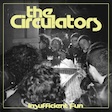 When I brainstorm what the Platonic ideal of a Total Punk release might be, and depending on precisely how constipated and/or drunk I am, something very close to this full-length debut from San Francisco’s The Circulators enters my consciousness. Theirs is a timeless form of punk rock tomfoolery, songs based in classic garage/rock n’ roll idioms, the same troubled path you might trace the influences that inspired first-wave originals like The Lewd, Shock or The Randoms. The bassist goes on all those slick melodic runs (Matt Freeman much?) while all six strings of the guitar are wildly strummed, and the singer is playful and charming, the sort of character sure to lead you into trouble that’s worth it for the excitement. His voice carries a tuneful shout delivered with the jolt of a bullhorn, similar in swagger and joie de vivre to The Time Flys and The Exploding Hearts without feeling like a late-to-the-party tag-along. The Circulators deliver it pure, and in a highly recognizable form – their existence lies closer to the millionth band that sounds like this than it does to the first – but that’s a testament to the power of audacious, freewheeling punk rock, unkillable by any media consumption trends or technological advances. Riot Fest’s roster should be filled with more bands like this if it has any intention of someday living up to its name.
When I brainstorm what the Platonic ideal of a Total Punk release might be, and depending on precisely how constipated and/or drunk I am, something very close to this full-length debut from San Francisco’s The Circulators enters my consciousness. Theirs is a timeless form of punk rock tomfoolery, songs based in classic garage/rock n’ roll idioms, the same troubled path you might trace the influences that inspired first-wave originals like The Lewd, Shock or The Randoms. The bassist goes on all those slick melodic runs (Matt Freeman much?) while all six strings of the guitar are wildly strummed, and the singer is playful and charming, the sort of character sure to lead you into trouble that’s worth it for the excitement. His voice carries a tuneful shout delivered with the jolt of a bullhorn, similar in swagger and joie de vivre to The Time Flys and The Exploding Hearts without feeling like a late-to-the-party tag-along. The Circulators deliver it pure, and in a highly recognizable form – their existence lies closer to the millionth band that sounds like this than it does to the first – but that’s a testament to the power of audacious, freewheeling punk rock, unkillable by any media consumption trends or technological advances. Riot Fest’s roster should be filled with more bands like this if it has any intention of someday living up to its name.
D. D. Mirage Feel It / So Hot 12″ (Isle Of Jura)
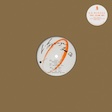 Right now there is no shortage of Balearic soft-rock disco funk being made by alt dudes dressed exactly the way their dads dressed in 1995, and… I really can’t seem to get enough! Rather than forage new genres, intrepid musicians take to refining their favorite pre-established ones, which goes for everything from crusty punk to hardcore techno to the relaxed-pace disco-funk of Sydney’s D.D. Mirage. “Feel It” comes in pop-vocal and extended-instrumental formats, smooth as Lionel Richie swimming in an infinity pool filled with piña colada. A verse invites the listener to “lose your mind”, but the groove is far too slickly sedate for me to lose anything other than my wedding ring in the silk sheets of a resort-hotel bed. “So Hot” arrives decked-out with a four-on-the-floor strut, light, period-piece cosmic touches and actively funky bass. The shout-along chant engages with a blissful vocoder’d refrain, like a robot maid serving up space-age charcuterie in a midnight lounge. “So Hot” receives a Jura Soundsystem dub, highlighting the slapped bass along a coterie of drifting keys, wet-hot pads and synths that descend like sunsets. I guess it’d be a little too try-hardy if these guys wore the unbuttoned silk shirts, crotch-choking booty-shorts and turquoise jewelry of the genre’s forefathers, but there’s gotta be some daring nu-Balearic producer out there who could pull this off, right?
Right now there is no shortage of Balearic soft-rock disco funk being made by alt dudes dressed exactly the way their dads dressed in 1995, and… I really can’t seem to get enough! Rather than forage new genres, intrepid musicians take to refining their favorite pre-established ones, which goes for everything from crusty punk to hardcore techno to the relaxed-pace disco-funk of Sydney’s D.D. Mirage. “Feel It” comes in pop-vocal and extended-instrumental formats, smooth as Lionel Richie swimming in an infinity pool filled with piña colada. A verse invites the listener to “lose your mind”, but the groove is far too slickly sedate for me to lose anything other than my wedding ring in the silk sheets of a resort-hotel bed. “So Hot” arrives decked-out with a four-on-the-floor strut, light, period-piece cosmic touches and actively funky bass. The shout-along chant engages with a blissful vocoder’d refrain, like a robot maid serving up space-age charcuterie in a midnight lounge. “So Hot” receives a Jura Soundsystem dub, highlighting the slapped bass along a coterie of drifting keys, wet-hot pads and synths that descend like sunsets. I guess it’d be a little too try-hardy if these guys wore the unbuttoned silk shirts, crotch-choking booty-shorts and turquoise jewelry of the genre’s forefathers, but there’s gotta be some daring nu-Balearic producer out there who could pull this off, right?
Djrum Meaning’s Edge 12″ (Houndstooth)
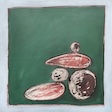 The flute has been creeping its way into having a fresh cultural moment, it seems. Not a whole lot in these pages starts with Lizzo, but she’s certainly due significant credit, and then of course the exaggerated beatdown-hardcore of Speed prominently features a flute on their newest, and Andre 3000 reinvented himself as an ambient flute maestro… the names are varied and the talents generally pretty impressive. Add Djrum to the list, as the British producer centers various flutes in the vigorous techno braindance that comprises his first record since 2019, Meaning’s Edge. These tracks twitch and flutter like Aphex Twin’s Syro with the hydraulic oomph of Mumdance & Logos’ Proto, woven with deadly precision and physically energizing even without the easy benefit of a typical 4/4 thump. The atmospheres are rich and the forward-motion is dizzying, and then there are those flutes, calling like a beacon from the opposite shore (“Crawl”) or enchanting the king’s court with a jaunty melody too dextrous and flashy to be performed by human fingers and lungs (“Frekm Pt. 1”). Not club music, unless of course your club discourages dancing in favor of eyes-closed head-wobbling and the occasional hand in the air, fingers wiggling as if conducting Djrum’s fanciful melodies and dazzling drums.
The flute has been creeping its way into having a fresh cultural moment, it seems. Not a whole lot in these pages starts with Lizzo, but she’s certainly due significant credit, and then of course the exaggerated beatdown-hardcore of Speed prominently features a flute on their newest, and Andre 3000 reinvented himself as an ambient flute maestro… the names are varied and the talents generally pretty impressive. Add Djrum to the list, as the British producer centers various flutes in the vigorous techno braindance that comprises his first record since 2019, Meaning’s Edge. These tracks twitch and flutter like Aphex Twin’s Syro with the hydraulic oomph of Mumdance & Logos’ Proto, woven with deadly precision and physically energizing even without the easy benefit of a typical 4/4 thump. The atmospheres are rich and the forward-motion is dizzying, and then there are those flutes, calling like a beacon from the opposite shore (“Crawl”) or enchanting the king’s court with a jaunty melody too dextrous and flashy to be performed by human fingers and lungs (“Frekm Pt. 1”). Not club music, unless of course your club discourages dancing in favor of eyes-closed head-wobbling and the occasional hand in the air, fingers wiggling as if conducting Djrum’s fanciful melodies and dazzling drums.
Earthen Sea Recollection LP (Kranky)
 There’s chill, and there’s very chill, and there’s Earthen Sea, whose music provides enough chill to maintain a warehouse of industrial coolers at a constant 33°F. There’s a lot to love about Jacob Long’s long-running solo ambient project – the records are all really good, for starters – but what I find most impressive is the way that each album takes on a life of its own, managed by its own unique sonic parameters yet beholden to a consistent state of meditative bliss. I assumed 2019’s Grass And Trees would be the project’s zenith, what with its memorably unorthodox hand-clap rhythms, but 2022’s Ghost Poems was equally mighty with its gorgeous, tempered glitch. And now Recollection might best them both, with decidedly jazzy movements care of delicate drumming and bass that wafts in like incense. There are even some more upbeat moments here: “Sunlit Leaving” feels like my favorite Kettenkarussell moments, rain-dappled dub techno that centers emotion and grace. The instrumentation is a little more familiar this time around, what with bass-guitar and keys, yet like those previous Earthen Sea albums, the sound remains fresh and vital. “Clear Photograph” even pulls back the curtain to reveal a bright blue sky outside, playing with forms of dub-techno, ambient, new-age and jazz with a breezy sense of time and space. Does Long even sneak a tiny bass solo in there? I’m not remotely religious, yet this feels like my kind of holy music. Let us give thanks and praise.
There’s chill, and there’s very chill, and there’s Earthen Sea, whose music provides enough chill to maintain a warehouse of industrial coolers at a constant 33°F. There’s a lot to love about Jacob Long’s long-running solo ambient project – the records are all really good, for starters – but what I find most impressive is the way that each album takes on a life of its own, managed by its own unique sonic parameters yet beholden to a consistent state of meditative bliss. I assumed 2019’s Grass And Trees would be the project’s zenith, what with its memorably unorthodox hand-clap rhythms, but 2022’s Ghost Poems was equally mighty with its gorgeous, tempered glitch. And now Recollection might best them both, with decidedly jazzy movements care of delicate drumming and bass that wafts in like incense. There are even some more upbeat moments here: “Sunlit Leaving” feels like my favorite Kettenkarussell moments, rain-dappled dub techno that centers emotion and grace. The instrumentation is a little more familiar this time around, what with bass-guitar and keys, yet like those previous Earthen Sea albums, the sound remains fresh and vital. “Clear Photograph” even pulls back the curtain to reveal a bright blue sky outside, playing with forms of dub-techno, ambient, new-age and jazz with a breezy sense of time and space. Does Long even sneak a tiny bass solo in there? I’m not remotely religious, yet this feels like my kind of holy music. Let us give thanks and praise.
Eros Your Truth Is A Lie LP (Downwards)
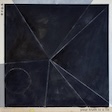 Big, bold, beautiful full-length outing here from Karl O’Connor AKA Regis in a newly-configured band formation. He handles the programming, percussion and vocals and is backed by My Disco’s Liam Andrews on guitars and bass alongside first-wave goth icon Annie Hogan on piano. As is to be expected with anything Downwards- or Regis-related, the production here is immense, with industrial percussion mastered to make your Honda Civic’s factory stereo sound like Berghain’s main room. Rather than drill us all into the ground (a technique of O’Connor’s that I personally find deeply enriching), Your Truth Is A Lie is restrained and sensual by comparison, preferring to slink through its lengthy tracks like a bolt of crimson velvet dragged down spiral marble stairs. No amateur Draculas allowed, this is high-functioning industrial-goth couture that expects its listeners to already bear the scars of Dead Can Dance and Bauhaus. I’m reminded a bit of Einstürzende Neubauten’s recent years, where the music remains intense, bleak and thrilling but is equally languid and charismatic, all with the wallop associated with Regis’s sonic signature. Eros is offering us a significant glimpse into their darkly decadent world, so try to behave yourself and act like you belong here, okay?
Big, bold, beautiful full-length outing here from Karl O’Connor AKA Regis in a newly-configured band formation. He handles the programming, percussion and vocals and is backed by My Disco’s Liam Andrews on guitars and bass alongside first-wave goth icon Annie Hogan on piano. As is to be expected with anything Downwards- or Regis-related, the production here is immense, with industrial percussion mastered to make your Honda Civic’s factory stereo sound like Berghain’s main room. Rather than drill us all into the ground (a technique of O’Connor’s that I personally find deeply enriching), Your Truth Is A Lie is restrained and sensual by comparison, preferring to slink through its lengthy tracks like a bolt of crimson velvet dragged down spiral marble stairs. No amateur Draculas allowed, this is high-functioning industrial-goth couture that expects its listeners to already bear the scars of Dead Can Dance and Bauhaus. I’m reminded a bit of Einstürzende Neubauten’s recent years, where the music remains intense, bleak and thrilling but is equally languid and charismatic, all with the wallop associated with Regis’s sonic signature. Eros is offering us a significant glimpse into their darkly decadent world, so try to behave yourself and act like you belong here, okay?
Fake Last Name Persuasion Domains 7″ (Yes We Cannibal)
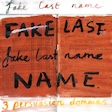 Fake Last Name is Ronni What’s solo project, who you might recognize from the under-appreciated Spllit. (Myself included – I need to spend more time enjoying their great Infinite Hatch album.) Fans of Spllit will undoubtedly appreciate Fake Last Name, as this studio-assembled solo-band is more post-punk in an over-it, queasily funky manner. The title track is right up there with the Artificial Go EP from a few months ago, and the Mania D. EP from a few decades ago, a serrated no-wave guitar twang on top of a poppy DIY bop with supremely disaffected vocals. “Gadfly” rides a cheap elastic bass-line into another cool zone; I can picture What in black sunglasses on the bus, no-selling the shrieking baby directly across from her. In a power-move, especially for a limited seven-inch few will hear, Ana da Silva (of The Raincoats) provides a deconstructed dub of the title track – vocals to the front! – before “Rain Come” wraps the EP, an instrumental with gently warbling synths and a choppy drum-machine. I could go for a Fake Last Name full-length pretty much immediately, couldn’t you?
Fake Last Name is Ronni What’s solo project, who you might recognize from the under-appreciated Spllit. (Myself included – I need to spend more time enjoying their great Infinite Hatch album.) Fans of Spllit will undoubtedly appreciate Fake Last Name, as this studio-assembled solo-band is more post-punk in an over-it, queasily funky manner. The title track is right up there with the Artificial Go EP from a few months ago, and the Mania D. EP from a few decades ago, a serrated no-wave guitar twang on top of a poppy DIY bop with supremely disaffected vocals. “Gadfly” rides a cheap elastic bass-line into another cool zone; I can picture What in black sunglasses on the bus, no-selling the shrieking baby directly across from her. In a power-move, especially for a limited seven-inch few will hear, Ana da Silva (of The Raincoats) provides a deconstructed dub of the title track – vocals to the front! – before “Rain Come” wraps the EP, an instrumental with gently warbling synths and a choppy drum-machine. I could go for a Fake Last Name full-length pretty much immediately, couldn’t you?
Flower-Corsano Duo The Chocolate Cities LP (C/Site Recordings)
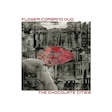 I love when people who run DIY labels use the opportunity to do whatever the hell they want with it. Stephan Christensen’s C/Site Recordings is generally utilized as a platform for the guitar improv/rock/psych scene in his general region, but if he wants to reissue a 2009 CD-r from Chris Corsano and Michael Flower, why the hell not! While I’m surprised at how well some of my ’00 noise CD-rs have held up (weren’t they supposed to disintegrate in ten years, or was that a conspiracy propagated by Big Streaming?), the original release of The Chocolate Cities evaded me until now. I can certainly understand Christensen’s rationale in giving this one a second life, as this duo recording is marvelous, two inspired players operating at full capacity. Michael Flower (whose work I have enjoyed as part of Vibracathedral Orchestra) plays a “Japanese banjo”, which sounds a whole heck of a lot like the taishogoto that Bill Nace has been spotlighting over the last few years. Flower ripples through it, a cascade of high-pitched harmonics spewing forth like a celestial Eddie Van Halen, and Corsano is in unrelenting octopus mode, low on auxiliary percussive elements in favor of straight-ahead tireless bashing on his trap kit. It’s a beautiful, thrilling pairing, and what with five song titles that all reference the indulgence (and overindulgence) of high-percentage-cacao chocolate, it comes strongly recommended.
I love when people who run DIY labels use the opportunity to do whatever the hell they want with it. Stephan Christensen’s C/Site Recordings is generally utilized as a platform for the guitar improv/rock/psych scene in his general region, but if he wants to reissue a 2009 CD-r from Chris Corsano and Michael Flower, why the hell not! While I’m surprised at how well some of my ’00 noise CD-rs have held up (weren’t they supposed to disintegrate in ten years, or was that a conspiracy propagated by Big Streaming?), the original release of The Chocolate Cities evaded me until now. I can certainly understand Christensen’s rationale in giving this one a second life, as this duo recording is marvelous, two inspired players operating at full capacity. Michael Flower (whose work I have enjoyed as part of Vibracathedral Orchestra) plays a “Japanese banjo”, which sounds a whole heck of a lot like the taishogoto that Bill Nace has been spotlighting over the last few years. Flower ripples through it, a cascade of high-pitched harmonics spewing forth like a celestial Eddie Van Halen, and Corsano is in unrelenting octopus mode, low on auxiliary percussive elements in favor of straight-ahead tireless bashing on his trap kit. It’s a beautiful, thrilling pairing, and what with five song titles that all reference the indulgence (and overindulgence) of high-percentage-cacao chocolate, it comes strongly recommended.
Fracatso Fracatso LP (Versatile)
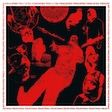 What’s up with France? There’s the great Nina Harker and their offshoots, the buy-on-sight Few Crackles scene with Ssabae, the wild-card Bruit Direct label, and now Fracatso adding to the mix of France’s anything-goes, post-avant music that’s as likely to borrow a motif from Stockhausen as Nicki Minaj. Surprisingly, Fracatso comes from a different social scene, one featuring the darkly-comedic techno producer Lowjack and Zaltan (just Zaltan) of the fantastic modern dance label Antinote. Alongside vocalist Laura Lippie and An-i collaborator Lueke, the quartet clearly had a hell of a night (actually make it two) composing and recording these heady vignettes, subliminally dripping through psych, jazz, left-field electronics, dub and spoken-word. Of all the names I’ve mentioned thus far, I sense a closest sonic camaraderie to Nina Harker, as Fracatso revels in jarring contrasts, sprinkling the smoldering embers of dub electronics up against a ravishing torch song or manic spoken-word. It has to be an extended sample on “The Shadowless” (right?), where a non-American English speaker recounts a disturbing tale of his toe being eaten by the shower drain over fat tuneless notes, and it fits in here as much as the slinky electro slow-jam of the self-evidently-titled “Moderne R&B” or the digital dub of “Free Root”, replete with live whistling. It’s fearless music, unconcerned with finding an audience so much as exploring whatever was laying around Lippie’s apartment that could be plugged in, blown, tapped, strummed or pressed.
What’s up with France? There’s the great Nina Harker and their offshoots, the buy-on-sight Few Crackles scene with Ssabae, the wild-card Bruit Direct label, and now Fracatso adding to the mix of France’s anything-goes, post-avant music that’s as likely to borrow a motif from Stockhausen as Nicki Minaj. Surprisingly, Fracatso comes from a different social scene, one featuring the darkly-comedic techno producer Lowjack and Zaltan (just Zaltan) of the fantastic modern dance label Antinote. Alongside vocalist Laura Lippie and An-i collaborator Lueke, the quartet clearly had a hell of a night (actually make it two) composing and recording these heady vignettes, subliminally dripping through psych, jazz, left-field electronics, dub and spoken-word. Of all the names I’ve mentioned thus far, I sense a closest sonic camaraderie to Nina Harker, as Fracatso revels in jarring contrasts, sprinkling the smoldering embers of dub electronics up against a ravishing torch song or manic spoken-word. It has to be an extended sample on “The Shadowless” (right?), where a non-American English speaker recounts a disturbing tale of his toe being eaten by the shower drain over fat tuneless notes, and it fits in here as much as the slinky electro slow-jam of the self-evidently-titled “Moderne R&B” or the digital dub of “Free Root”, replete with live whistling. It’s fearless music, unconcerned with finding an audience so much as exploring whatever was laying around Lippie’s apartment that could be plugged in, blown, tapped, strummed or pressed.
Helen Gillet Tonnerre – Live At YWC 7″ (Yes We Cannibal)
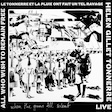 Belgian-American cellist Helen Gillet wields her cello in a war against war in this visceral live performance recorded in Baton Rouge on April 10th, 2022. For this piece she layers and loops her live cello over an old, static-laced recording of Charles De Gaulle urging French resistance, and it doesn’t take a French historian to connect with the urgency and fervor of Gillet’s performance. A versatile player, Gillet can shape her cello into a powerful locomotive engine, an angelic choir and a dentist’s drill, often simultaneously. “Tonnerre” is in constant molten movement, sharing more in common with Anti-Cimex than Arthur Russell – this is rage music with no qualms about getting filthy or forcing you to confront its filthiness. I wasn’t in the room with her, but this recording really captures the captivating essence of the piece. The Crass-indebted artwork surely isn’t a coincidence. Between this and the Fake Last Name EP, Yes We Cannibal is reminding me of Rough Trade at its infancy, offering up a fresh and diverse roster bursting with underground creativity and undiluted ideals.
Belgian-American cellist Helen Gillet wields her cello in a war against war in this visceral live performance recorded in Baton Rouge on April 10th, 2022. For this piece she layers and loops her live cello over an old, static-laced recording of Charles De Gaulle urging French resistance, and it doesn’t take a French historian to connect with the urgency and fervor of Gillet’s performance. A versatile player, Gillet can shape her cello into a powerful locomotive engine, an angelic choir and a dentist’s drill, often simultaneously. “Tonnerre” is in constant molten movement, sharing more in common with Anti-Cimex than Arthur Russell – this is rage music with no qualms about getting filthy or forcing you to confront its filthiness. I wasn’t in the room with her, but this recording really captures the captivating essence of the piece. The Crass-indebted artwork surely isn’t a coincidence. Between this and the Fake Last Name EP, Yes We Cannibal is reminding me of Rough Trade at its infancy, offering up a fresh and diverse roster bursting with underground creativity and undiluted ideals.
Inspector 34 Squint Your Ears LP (Sad Milk Collective)
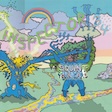 It’s nice that even in our homogenized, de-localized music culture, you can still occasionally pick up on where certain groups are from just by listening to their music. Take Inspector 34, for instance, who started off in Lowell, MA and relocated to Los Angeles, a move that only jealous Lowell locals could fault them for. They’ve got the free-wheeling, hippie-freak rock style I associate with Vermont and New Hampshire, that sort of outlaw guitar behavior I’ve come to expect from Feeding Tube Records, but they deliver it in this spastic, art-funk manner that has me thinking Jane’s Addiction and LA decadence. Harvey Danger meets Frank Zappa, perhaps? Vocalist Jim Warren likes to go high, loud and long on the mic in a manner not far removed from a youthful Perry Farrell, though I can only assume Warren hasn’t made half as many mistakes in his life. Squint Your Ears is alt-rock that nowadays could probably find a home in the semi-underground jam-band scene, but in the ’90s they would’ve been doing shirtless video-shoots with UV body paint on some million-dollar Geffen Records deal. Miss those days! Nowadays, you’re kinda screwed no matter what you do, but there’s a freedom in that, and it seems Inspector 34 are going to pursue wherever it is that their freedom takes them.
It’s nice that even in our homogenized, de-localized music culture, you can still occasionally pick up on where certain groups are from just by listening to their music. Take Inspector 34, for instance, who started off in Lowell, MA and relocated to Los Angeles, a move that only jealous Lowell locals could fault them for. They’ve got the free-wheeling, hippie-freak rock style I associate with Vermont and New Hampshire, that sort of outlaw guitar behavior I’ve come to expect from Feeding Tube Records, but they deliver it in this spastic, art-funk manner that has me thinking Jane’s Addiction and LA decadence. Harvey Danger meets Frank Zappa, perhaps? Vocalist Jim Warren likes to go high, loud and long on the mic in a manner not far removed from a youthful Perry Farrell, though I can only assume Warren hasn’t made half as many mistakes in his life. Squint Your Ears is alt-rock that nowadays could probably find a home in the semi-underground jam-band scene, but in the ’90s they would’ve been doing shirtless video-shoots with UV body paint on some million-dollar Geffen Records deal. Miss those days! Nowadays, you’re kinda screwed no matter what you do, but there’s a freedom in that, and it seems Inspector 34 are going to pursue wherever it is that their freedom takes them.
The Intima Peril And Panic LP (Post Present Medium)
 The strain of reissue that inherently makes the least sense to me is the one where you can still pick up original copies online for cheaper than the cost of a new record. That’s the case with The Intima’s 2003 album Peril And Panic, originally released by Collective Jyrk and Zum and available on Discogs at the time of this writing for $7.99. To be fair, not all reissues are based in cold hard economics; it’s clear that Post Present Medium wanted to shine a fresh light on what they considered an under-heralded underground Portland classic, regardless of the original vinyl’s resale market value. I can understand why, as Peril And Panic is a pretty sophisticated record for the time and scene it existed in, surrounded by the first-wave of costumed art-school noise-rockers and sloppy mutant-disco freaks. The Intima had more in common with the dark post-punk poetry of The Ex than with their contemporaries, with elements of gloomy art-folk establishing the unsettled mood. I could see them sharing the stage with Black Eyes (and they did), both groups delivering urgent post-punk missives with specific intent and artistry over shock value. Nora Danielson’s violin is probably the most distinctive element, offering the familiar sound of the instrument in ways both seasick and stern, with even a little Behead The Prophet NLSL-styled chaos for good measure (check “From Exile” – because how can any punk band resist?). The Intima would’ve made as much stylistic sense alongside Mineral as The Cranium, and back when every sub-sub-genre wasn’t over-saturated and you booked a show with whatever bands were willing to make the drive, The Intima probably shared foot-high plywood stages with both.
The strain of reissue that inherently makes the least sense to me is the one where you can still pick up original copies online for cheaper than the cost of a new record. That’s the case with The Intima’s 2003 album Peril And Panic, originally released by Collective Jyrk and Zum and available on Discogs at the time of this writing for $7.99. To be fair, not all reissues are based in cold hard economics; it’s clear that Post Present Medium wanted to shine a fresh light on what they considered an under-heralded underground Portland classic, regardless of the original vinyl’s resale market value. I can understand why, as Peril And Panic is a pretty sophisticated record for the time and scene it existed in, surrounded by the first-wave of costumed art-school noise-rockers and sloppy mutant-disco freaks. The Intima had more in common with the dark post-punk poetry of The Ex than with their contemporaries, with elements of gloomy art-folk establishing the unsettled mood. I could see them sharing the stage with Black Eyes (and they did), both groups delivering urgent post-punk missives with specific intent and artistry over shock value. Nora Danielson’s violin is probably the most distinctive element, offering the familiar sound of the instrument in ways both seasick and stern, with even a little Behead The Prophet NLSL-styled chaos for good measure (check “From Exile” – because how can any punk band resist?). The Intima would’ve made as much stylistic sense alongside Mineral as The Cranium, and back when every sub-sub-genre wasn’t over-saturated and you booked a show with whatever bands were willing to make the drive, The Intima probably shared foot-high plywood stages with both.
Lifeless Dark Forces Of Nature’s Transformation LP (Side Two)
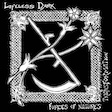 Often “blackened” is a metal descriptor that comes at the expense of an expansive, heavy sound, but if you think notable control-freak guitarist/producer Chris Corry (of Mind Eraser and No Tolerance) is gonna serve us a meager, brittle recording, you’ve been living in the (lifeless) dark for the past twenty years! Lifeless Dark is pitch-perfect blackened thrash, very much in the vein of Sacrilege (and to a lesser extent Détente), the full history of underground speed-metal studied, clarified and reduced into this potent, richly constructed debut album. If it’s not purely metal, it’s close, from the speed-demon riffs to the crushing breakdowns, dual guitars leading the charge like grim reapers on flaming stallion skeletons. (Did I accidentally come up with an appropriate T-shirt design?) Drummer Ryan Abbott (who recorded the album alongside Corry at his Side Two studio) enhances his kit with the thick, roomy boom I’d expect to hear on a Testament or Agent Steel record, his tom-heavy fills thunderous and heavy as lead. Vocalist Elaine Sullivan may not have the range of Katon De Pena (or if she does, she keeps it to herself), but her scowling, tortured voice delivers a fierce bite while still enunciating to the point where a lyric sheet isn’t needed. Not sure what else you need – every puzzle piece is in place here, the dirges balance the raging gallops, the imagery is mystical and foreboding, the album title references some oblique supernatural occurrence… if you don’t know how to bang your head, someone else is going to have to teach you.
Often “blackened” is a metal descriptor that comes at the expense of an expansive, heavy sound, but if you think notable control-freak guitarist/producer Chris Corry (of Mind Eraser and No Tolerance) is gonna serve us a meager, brittle recording, you’ve been living in the (lifeless) dark for the past twenty years! Lifeless Dark is pitch-perfect blackened thrash, very much in the vein of Sacrilege (and to a lesser extent Détente), the full history of underground speed-metal studied, clarified and reduced into this potent, richly constructed debut album. If it’s not purely metal, it’s close, from the speed-demon riffs to the crushing breakdowns, dual guitars leading the charge like grim reapers on flaming stallion skeletons. (Did I accidentally come up with an appropriate T-shirt design?) Drummer Ryan Abbott (who recorded the album alongside Corry at his Side Two studio) enhances his kit with the thick, roomy boom I’d expect to hear on a Testament or Agent Steel record, his tom-heavy fills thunderous and heavy as lead. Vocalist Elaine Sullivan may not have the range of Katon De Pena (or if she does, she keeps it to herself), but her scowling, tortured voice delivers a fierce bite while still enunciating to the point where a lyric sheet isn’t needed. Not sure what else you need – every puzzle piece is in place here, the dirges balance the raging gallops, the imagery is mystical and foreboding, the album title references some oblique supernatural occurrence… if you don’t know how to bang your head, someone else is going to have to teach you.
Mommy Boys Mommy Boys 7″ (Saalepower 2)
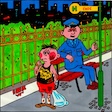 Bravo to Berlin’s Mommy Boys for the creepiest cover art of the month – that red-eyed cop (or is he a bus driver?) is giving me nightmares and I haven’t fallen asleep yet! I’d expect these characters to exist in the same cartoon universe as the parade of freaks on the cover of the Hatelijke Groenten compilation, which I mean as high praise. Not enough compelling and original punk cartoon characters these days! What are today’s punk kids supposed to draw on their notebooks, Allroy? As for Mommy Boys, let’s look past that band name without a second thought, seeing as they filled this seven-inch EP with eleven songs, the mark of a quality punk artifact. They do a good job of unintentionally sounding as early to hardcore-punk as the bands on the aforementioned 1982 compilation, in that European way where the songs are simplistic, cheaply recorded, vaguely humorless and performed with angst, not skill. The bass-guitar cuts through the haze of pawn-shop guitar, each little note on display among the rapidly shouted German vocals, and they stick with it the whole way through. Not special, but also somehow perfect? I still need a copy of The Squits’ sole EP, but until I track one of those down, this Mommy Boys record will satisfy a similar hankering.
Bravo to Berlin’s Mommy Boys for the creepiest cover art of the month – that red-eyed cop (or is he a bus driver?) is giving me nightmares and I haven’t fallen asleep yet! I’d expect these characters to exist in the same cartoon universe as the parade of freaks on the cover of the Hatelijke Groenten compilation, which I mean as high praise. Not enough compelling and original punk cartoon characters these days! What are today’s punk kids supposed to draw on their notebooks, Allroy? As for Mommy Boys, let’s look past that band name without a second thought, seeing as they filled this seven-inch EP with eleven songs, the mark of a quality punk artifact. They do a good job of unintentionally sounding as early to hardcore-punk as the bands on the aforementioned 1982 compilation, in that European way where the songs are simplistic, cheaply recorded, vaguely humorless and performed with angst, not skill. The bass-guitar cuts through the haze of pawn-shop guitar, each little note on display among the rapidly shouted German vocals, and they stick with it the whole way through. Not special, but also somehow perfect? I still need a copy of The Squits’ sole EP, but until I track one of those down, this Mommy Boys record will satisfy a similar hankering.
Jayden Mont Jayden Mont LP (Frihetens Förlag)
 I love a record laden with strange personal circumstances, and this album from Jayden Mont, who was twelve years-old at the time of release, is soaking in it! Not that this album needed any help being weird as hell on its own, but this self-titled album was released on Frihetens Förlag, a subsidiary of Discreet Music and its family of Swedish lo-fi experimental music labels of which I have been an enthusiastic fan. Last September I was driving to Chicago, having freshly listened to the Demeters Döttrar album on Discreet Music, and I stopped in a particularly desolate western Pennsylvanian town called Belle Vernon – little more than a couple traffic lights and a standard-issue Taco Bell – en route to staying with my friend Derek Erdman. A few weeks later, this album was released, featuring Jayden Mont of Belle Vernon, PA with cover art by Derek Erdman! None of it makes a lick of sense, not even the insert which outlines how the pre-teen Mont reached out to Discreet Music’s Bandcamp page soliciting demo recordings – don’t worry, the label rightfully checked with Mont’s mom before proceeding. No idea how Mont found Erdman, either! I am, however, familiar with twelve year-olds, and Jayden Mont’s material, consisting of his singing/speaking and an unaltered electric keyboard, certainly sounds like it came from a twelve year-old. Strong early Daniel Johnston vibes, with the occasional sound of the TV on in the other room over songs that provide a naked glimpse into the inner psyche of a lonely small-town American boy. I don’t see myself listening to it much in the future, but I’ll be thinking about it forever.
I love a record laden with strange personal circumstances, and this album from Jayden Mont, who was twelve years-old at the time of release, is soaking in it! Not that this album needed any help being weird as hell on its own, but this self-titled album was released on Frihetens Förlag, a subsidiary of Discreet Music and its family of Swedish lo-fi experimental music labels of which I have been an enthusiastic fan. Last September I was driving to Chicago, having freshly listened to the Demeters Döttrar album on Discreet Music, and I stopped in a particularly desolate western Pennsylvanian town called Belle Vernon – little more than a couple traffic lights and a standard-issue Taco Bell – en route to staying with my friend Derek Erdman. A few weeks later, this album was released, featuring Jayden Mont of Belle Vernon, PA with cover art by Derek Erdman! None of it makes a lick of sense, not even the insert which outlines how the pre-teen Mont reached out to Discreet Music’s Bandcamp page soliciting demo recordings – don’t worry, the label rightfully checked with Mont’s mom before proceeding. No idea how Mont found Erdman, either! I am, however, familiar with twelve year-olds, and Jayden Mont’s material, consisting of his singing/speaking and an unaltered electric keyboard, certainly sounds like it came from a twelve year-old. Strong early Daniel Johnston vibes, with the occasional sound of the TV on in the other room over songs that provide a naked glimpse into the inner psyche of a lonely small-town American boy. I don’t see myself listening to it much in the future, but I’ll be thinking about it forever.
Naked Roommate Pass The Loofah LP (Trouble In Mind)
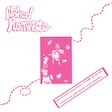 From the perpetually-active hive of punky freaks (or are they freaky punks?) in Berkeley comes Naked Roommate. They formed around the “real-life partners” duo of Andy Jordan & Amber Sermeno (who both play(ed) in The World), and as Naked Roommate they opt for a more electronic, dance-oriented route than the jangle and strum I’d typically associate with these folks. Pass The Loofah delivers a quarantined dance music, played on bass-guitar and keyboards you can cram in a closet after you’re done. One could certainly trace these funky bass-lines and snappy electronic percussive elements back to the heyday of 99 Records, disco-not-disco from underground artists who wanted the no-wave crowds to shake their asses, not scramble for the exit. Of course there’s a vast variety of sonic options for Naked Roommate here in the present day, and they seem to have mashed up the sugar-free electro-pop bliss of late ’90s indie-tronica and the winking sass of early ’00s electroclash along the way. It would be a heap of carefree fun if every song had generic “baby I miss you” lyrics, but Naked Roommate tease the quotidian in memorable ways, getting in well-deserved shots on Botox and “a highly pixelated bored ape”, celebrating public transportation (“Bus”) and teasing out the awkward topic of class-status in friendship (“Successful Friend”). It’s fun to dance and chuckle at the same time, even if you eventually have to ask yourself: have I ever been the ‘naked roommate’?
From the perpetually-active hive of punky freaks (or are they freaky punks?) in Berkeley comes Naked Roommate. They formed around the “real-life partners” duo of Andy Jordan & Amber Sermeno (who both play(ed) in The World), and as Naked Roommate they opt for a more electronic, dance-oriented route than the jangle and strum I’d typically associate with these folks. Pass The Loofah delivers a quarantined dance music, played on bass-guitar and keyboards you can cram in a closet after you’re done. One could certainly trace these funky bass-lines and snappy electronic percussive elements back to the heyday of 99 Records, disco-not-disco from underground artists who wanted the no-wave crowds to shake their asses, not scramble for the exit. Of course there’s a vast variety of sonic options for Naked Roommate here in the present day, and they seem to have mashed up the sugar-free electro-pop bliss of late ’90s indie-tronica and the winking sass of early ’00s electroclash along the way. It would be a heap of carefree fun if every song had generic “baby I miss you” lyrics, but Naked Roommate tease the quotidian in memorable ways, getting in well-deserved shots on Botox and “a highly pixelated bored ape”, celebrating public transportation (“Bus”) and teasing out the awkward topic of class-status in friendship (“Successful Friend”). It’s fun to dance and chuckle at the same time, even if you eventually have to ask yourself: have I ever been the ‘naked roommate’?
Bill Orcutt How To Rescue Things LP (Palilalia)
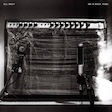 While I despise Elon Musk as much as the next rational human, I can’t help but relate to his simps with my own personal Bill Orcutt fandom. I find myself exclaiming “masterful gambit, sir!” after each new Bill Orcutt release, and How To Rescue Things is certainly no exception. The process for this album involves slow-drifting samples of old-timey, church-y vocal choruses/strings at their most extremely dulcet. Over these sleepy-time lullaby Bambi / Snow White-era orchestral movements for children and their nannies, Orcutt calmly sits on his stool and finagles his own conjoining guitar licks, messages transmitted back to those tender ghosts of yore. This is the closest I feel like he’s ever gotten to John Fahey, which maybe I’m only saying because I recently pulled out my Fahey Christmas records, but there’s that shared sense of serenity with tremulous energy nipping at its edges happening here. Orcutt’s style remains singular, of course, and while he reflects back a similar holy deference at times, he also whips his flash-bang note-clusters into a frenzy on occasion, surely moved by the mood of the moment. It’s a conceptual piece, no doubt, but for my limited money, Orcutt’s concepts are always a cut above, be it a Joey Ramone count-off blasted via computer algorithm (A Mechanical Joey), intricate harmonic interplay ala Philip Glass (Music For Four Guitars) or the pulchritudinous, yes pulchritudinous, How To Rescue Things.
While I despise Elon Musk as much as the next rational human, I can’t help but relate to his simps with my own personal Bill Orcutt fandom. I find myself exclaiming “masterful gambit, sir!” after each new Bill Orcutt release, and How To Rescue Things is certainly no exception. The process for this album involves slow-drifting samples of old-timey, church-y vocal choruses/strings at their most extremely dulcet. Over these sleepy-time lullaby Bambi / Snow White-era orchestral movements for children and their nannies, Orcutt calmly sits on his stool and finagles his own conjoining guitar licks, messages transmitted back to those tender ghosts of yore. This is the closest I feel like he’s ever gotten to John Fahey, which maybe I’m only saying because I recently pulled out my Fahey Christmas records, but there’s that shared sense of serenity with tremulous energy nipping at its edges happening here. Orcutt’s style remains singular, of course, and while he reflects back a similar holy deference at times, he also whips his flash-bang note-clusters into a frenzy on occasion, surely moved by the mood of the moment. It’s a conceptual piece, no doubt, but for my limited money, Orcutt’s concepts are always a cut above, be it a Joey Ramone count-off blasted via computer algorithm (A Mechanical Joey), intricate harmonic interplay ala Philip Glass (Music For Four Guitars) or the pulchritudinous, yes pulchritudinous, How To Rescue Things.
Or Sobre Blau Piri Piri Samplers + O Terço Dos Homens LP (Stroom)
 The gloriously non-denominational Stroom pulls out a hairy one here from Or Sobre Blau. The duo of Andreu G. Serra and Kiran Leonard came about when the Catalonian and English pair found each other living in Lisbon at the same time, new friends in an unfamiliar surrounding. It’s my personal dream to one day move to Lisbon and find someone cool to make music with, and I’m glad that Or Sobre Blau do well with this chance encounter of their dual guitars. It’s certainly the closest thing to The Dead C that Stroom has ever released, as there’s usually some form of buzzing caterwaul tempered by inquisitive picking happening here, lively conversations between storm and ship. I have no idea which guitarist is doing what, and I wouldn’t be surprised if they take turns sharing all aspects of the emotional spectrum, from meditative ring-outs to itchy noodling. I’d say it’s in league with other isolated rock deconstructionists like Mosquitoes and Greymouth, though Or Sobre Blau sounds the most “live” of the three, as if what you’re hearing is a direct line to the two of them sitting on folding chairs with their 1×10″ tube amps aimed at each other, late on a Sunday evening while the rest of the city settles into sleep. Completely unexpected from Stroom, which of course means it’s precisely what I should’ve expected.
The gloriously non-denominational Stroom pulls out a hairy one here from Or Sobre Blau. The duo of Andreu G. Serra and Kiran Leonard came about when the Catalonian and English pair found each other living in Lisbon at the same time, new friends in an unfamiliar surrounding. It’s my personal dream to one day move to Lisbon and find someone cool to make music with, and I’m glad that Or Sobre Blau do well with this chance encounter of their dual guitars. It’s certainly the closest thing to The Dead C that Stroom has ever released, as there’s usually some form of buzzing caterwaul tempered by inquisitive picking happening here, lively conversations between storm and ship. I have no idea which guitarist is doing what, and I wouldn’t be surprised if they take turns sharing all aspects of the emotional spectrum, from meditative ring-outs to itchy noodling. I’d say it’s in league with other isolated rock deconstructionists like Mosquitoes and Greymouth, though Or Sobre Blau sounds the most “live” of the three, as if what you’re hearing is a direct line to the two of them sitting on folding chairs with their 1×10″ tube amps aimed at each other, late on a Sunday evening while the rest of the city settles into sleep. Completely unexpected from Stroom, which of course means it’s precisely what I should’ve expected.
Stylianos Ou & The Cortisol Cows Fucked Forever LP (Ever/Never)
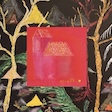 New York’s Ever/Never travels to Greece for this new find, singer/songwriter/painter/writer/ruthless experimenter Stelios Papagrigoriou under the guise of Stylianos Ou performing with local ensemble The Cortisol Cows. Ou is a wild card among wild cards, and while I wouldn’t be surprised if an album titled Fucked Forever was full of shrieking high-pitched sine waves, I’m only a little more surprised that it’s actually a sleepy, countrified indie outing. Backed by a string-heavy ensemble (cello and banjo feature prominently alongside guitars and keys), Ou is kooky in an understated way, trudging through relaxed rock in line with Bonnie “Prince” Billy and Neil Young, at least in a very macro sense. If anything, these songs remind me of Bill Callahan’s full-band live setup, were Callahan to allow his inner-weirdo to take over entirely, no matter if it compromises any chance of financial compensation or industry accolades. You have to be willing to accept that some people won’t take songs called “Our Fake Tits” and “Pornhub Spiritual” seriously no matter how much of an esteemed artist CV you’re toting, but Ou surely isn’t bothered. Making sense doesn’t seem to rank high on Ou’s list of concerns, of course, which is how we ended up with this meandering, oddly pleasant and darkly playful album of non-American roots rock in the first place.
New York’s Ever/Never travels to Greece for this new find, singer/songwriter/painter/writer/ruthless experimenter Stelios Papagrigoriou under the guise of Stylianos Ou performing with local ensemble The Cortisol Cows. Ou is a wild card among wild cards, and while I wouldn’t be surprised if an album titled Fucked Forever was full of shrieking high-pitched sine waves, I’m only a little more surprised that it’s actually a sleepy, countrified indie outing. Backed by a string-heavy ensemble (cello and banjo feature prominently alongside guitars and keys), Ou is kooky in an understated way, trudging through relaxed rock in line with Bonnie “Prince” Billy and Neil Young, at least in a very macro sense. If anything, these songs remind me of Bill Callahan’s full-band live setup, were Callahan to allow his inner-weirdo to take over entirely, no matter if it compromises any chance of financial compensation or industry accolades. You have to be willing to accept that some people won’t take songs called “Our Fake Tits” and “Pornhub Spiritual” seriously no matter how much of an esteemed artist CV you’re toting, but Ou surely isn’t bothered. Making sense doesn’t seem to rank high on Ou’s list of concerns, of course, which is how we ended up with this meandering, oddly pleasant and darkly playful album of non-American roots rock in the first place.
Kelly Lee Owens Dreamstate LP (dh2)
 Techno is big business over there in the UK, and I can imagine its investors are scrambling to get behind DJ/producer Kelly Lee Owen’s fourth and biggest full-length, Dreamstate. This isn’t big-room techno, it’s stadium techno, larger-than-life, pop-minded dance music that demands so appealingly little of its listeners. Throw your hands up with the glow-sticks they gave you when you scanned your ticket past security and release yourself to the pulsing melodies, relatable drops and angelic voice of Kelly Lee Owens. I was watching an episode of Buffy recently, one where she knocks her college roommate for listening to Cher’s “Believe” on repeat, and I couldn’t help but chuckle at how the image of featherweight, trance-adjacent techno-pop has been revitalized into the zeitgeist of today’s party-going youths (if mainly still in the UK and Europe). Dreamstate is full of similar soft-thrills, essentially taking Coldplay’s melodramatic emotional core and splashing it onto a 4/4 electronic grid, and just like “Believe”, it’s cotton-candy soul-food that hits just right. Dreamstate is high-precision in that regard – the production assistance from Euro mainstream-cracking Bicep and Tom Rowlands of The Chemical Brothers doesn’t miss, nor does it deviate from the sensual, Pure Moods vagueness that leads us all into the corporate-friendly euphoria of Kelly Lee Owens, myself included.
Techno is big business over there in the UK, and I can imagine its investors are scrambling to get behind DJ/producer Kelly Lee Owen’s fourth and biggest full-length, Dreamstate. This isn’t big-room techno, it’s stadium techno, larger-than-life, pop-minded dance music that demands so appealingly little of its listeners. Throw your hands up with the glow-sticks they gave you when you scanned your ticket past security and release yourself to the pulsing melodies, relatable drops and angelic voice of Kelly Lee Owens. I was watching an episode of Buffy recently, one where she knocks her college roommate for listening to Cher’s “Believe” on repeat, and I couldn’t help but chuckle at how the image of featherweight, trance-adjacent techno-pop has been revitalized into the zeitgeist of today’s party-going youths (if mainly still in the UK and Europe). Dreamstate is full of similar soft-thrills, essentially taking Coldplay’s melodramatic emotional core and splashing it onto a 4/4 electronic grid, and just like “Believe”, it’s cotton-candy soul-food that hits just right. Dreamstate is high-precision in that regard – the production assistance from Euro mainstream-cracking Bicep and Tom Rowlands of The Chemical Brothers doesn’t miss, nor does it deviate from the sensual, Pure Moods vagueness that leads us all into the corporate-friendly euphoria of Kelly Lee Owens, myself included.
B. Rupp Pop Music LP (Accidental Meetings)
 Pop Music is one of those rare album titles whose face value can never be taken seriously, not that seriousness would ever be its intention. B. Rupp’s definition, then, seems to be an electronic form of post-punk that behaves like a skeleton made of rubber, the form stripped to its barest parts and rendered in wobbly elastic. No guitars here, or at least none that I can recognize – Rupp’s music is built around slithering bass-lines (either fully synthetic or played on a bass-guitar), psychotic mid-tempo drum-machine pulses ala The Normal’s “T.V.O.D.” and his trash-compacted vocals. He’s not the first to swing in this direction, yet while a majority of minimalist, electronically-formulated post-punk artists create music that is as sexless and imposing as an auto mechanics textbook, Rupp exudes a weird sensuality throughout, in an appealing and unforced way. Maybe it’s the production of the bass and selection of low-end grooves (see the slippery funk of “Please Continue”) that has me recalling the joy I felt listening to Matthew Dear’s Black City for the first time, but even a true oddball track like “Our Sedentary Lives”, built on steamy vocals and sustained guitar picking, feels as grotesquely human as the naked curled-up shoulder on the cover. The next time you encounter some dark post-punk industrial dance project that colors entirely by the numbers, inconspicuously send them a link to Pop Music, a shining example of how to succeed beyond the genre’s typical confines.
Pop Music is one of those rare album titles whose face value can never be taken seriously, not that seriousness would ever be its intention. B. Rupp’s definition, then, seems to be an electronic form of post-punk that behaves like a skeleton made of rubber, the form stripped to its barest parts and rendered in wobbly elastic. No guitars here, or at least none that I can recognize – Rupp’s music is built around slithering bass-lines (either fully synthetic or played on a bass-guitar), psychotic mid-tempo drum-machine pulses ala The Normal’s “T.V.O.D.” and his trash-compacted vocals. He’s not the first to swing in this direction, yet while a majority of minimalist, electronically-formulated post-punk artists create music that is as sexless and imposing as an auto mechanics textbook, Rupp exudes a weird sensuality throughout, in an appealing and unforced way. Maybe it’s the production of the bass and selection of low-end grooves (see the slippery funk of “Please Continue”) that has me recalling the joy I felt listening to Matthew Dear’s Black City for the first time, but even a true oddball track like “Our Sedentary Lives”, built on steamy vocals and sustained guitar picking, feels as grotesquely human as the naked curled-up shoulder on the cover. The next time you encounter some dark post-punk industrial dance project that colors entirely by the numbers, inconspicuously send them a link to Pop Music, a shining example of how to succeed beyond the genre’s typical confines.
Nina Ryser Water Giants LP (Dear Life)
 If you don’t know Nina Ryser from Palberta and Shimmer, I recommend that you acquaint yourself with Palberta if you like it soft and Shimmer if you like it hard (and both if you like, uh, both). Ryser’s never been short on creative ideas, and this new full-length bursts at the seams with lowercase pop in a variety of subversive guises. There are soft indie guitars, electronic loops, a variety of synths used for both texture and melodic lead, and of course Ryser’s charming voice, confident and traditionally tuneful in a way that reminds me of Ruth Garbus (you can just tell that they’re both glasses-wearers, you know?). With the way that practically anyone can spend unlimited time in “the studio” (ie. in front of their laptop), the freedom can be creatively crippling, but Ryser is one of those best-case scenarios, where each song sounds dramatically different from the next, not only sonically but from the instrumentation involved as well, yet it never feels slapped-together or incoherent. The warbling instrumental of “Piggy Boys” somehow makes sense amidst the fuzzy digital-pop of “Underestimate”, wherein what are those, pitched-down cellos at the end? The unrestrained, kaleidoscopic vision of Water Giants reminds me of Katie Alice Greer’s excellent Barbarism were it crafted with Grass Widow’s deadly precision and Howard Hello’s impish-prog tendencies. Recorded with seven auxiliary performers, Ryser and company clearly labored over Water Giants so we could love it.
If you don’t know Nina Ryser from Palberta and Shimmer, I recommend that you acquaint yourself with Palberta if you like it soft and Shimmer if you like it hard (and both if you like, uh, both). Ryser’s never been short on creative ideas, and this new full-length bursts at the seams with lowercase pop in a variety of subversive guises. There are soft indie guitars, electronic loops, a variety of synths used for both texture and melodic lead, and of course Ryser’s charming voice, confident and traditionally tuneful in a way that reminds me of Ruth Garbus (you can just tell that they’re both glasses-wearers, you know?). With the way that practically anyone can spend unlimited time in “the studio” (ie. in front of their laptop), the freedom can be creatively crippling, but Ryser is one of those best-case scenarios, where each song sounds dramatically different from the next, not only sonically but from the instrumentation involved as well, yet it never feels slapped-together or incoherent. The warbling instrumental of “Piggy Boys” somehow makes sense amidst the fuzzy digital-pop of “Underestimate”, wherein what are those, pitched-down cellos at the end? The unrestrained, kaleidoscopic vision of Water Giants reminds me of Katie Alice Greer’s excellent Barbarism were it crafted with Grass Widow’s deadly precision and Howard Hello’s impish-prog tendencies. Recorded with seven auxiliary performers, Ryser and company clearly labored over Water Giants so we could love it.
Shafrah Bnat El Medinah 12″ (Saalepower 2)
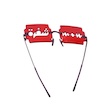 Lots of hardcore bands like to present their music as existing in a fraught state of turmoil, as though their lives on are on the constant brink of violence. It’s a nice fantasy for bored suburban teenage boys, but it feels a lot more authentic when it comes from a Germany-stationed hardcore group singing in Arabic. There is scant information to be found about Shafrah online, probably because of the very real threats that pro-Palestinian artists are faced with in any of the quietly-fascist first-world countries on our planet today (Germany in particular!), but I trust that the good folks at Saalepower 2 know the group’s deal, and I applaud them for giving them the platform they’re due. I appreciate that there is zero English on this release (German translations are provided alongside the Arabic lyrics), but a quick online translation reveals song titles like “Arguments”, “Spirit”, “I Stand Up” and “Forced On You”. This music, which is somewhat typical modern pogo-beat hardcore in a lo-fi fashion, is surely a direct protest against the genocidal warmongers who continue to ignore any and all rational pleas for peace. I hate that Bnat El Medinah might be looked upon as a dangerous and radical album by some, but that’s where we’re at right now: recognizing the humanity of and demanding compassion for all people are somehow bold and disturbing ideals to the leaders of our upside-down hellworld.
Lots of hardcore bands like to present their music as existing in a fraught state of turmoil, as though their lives on are on the constant brink of violence. It’s a nice fantasy for bored suburban teenage boys, but it feels a lot more authentic when it comes from a Germany-stationed hardcore group singing in Arabic. There is scant information to be found about Shafrah online, probably because of the very real threats that pro-Palestinian artists are faced with in any of the quietly-fascist first-world countries on our planet today (Germany in particular!), but I trust that the good folks at Saalepower 2 know the group’s deal, and I applaud them for giving them the platform they’re due. I appreciate that there is zero English on this release (German translations are provided alongside the Arabic lyrics), but a quick online translation reveals song titles like “Arguments”, “Spirit”, “I Stand Up” and “Forced On You”. This music, which is somewhat typical modern pogo-beat hardcore in a lo-fi fashion, is surely a direct protest against the genocidal warmongers who continue to ignore any and all rational pleas for peace. I hate that Bnat El Medinah might be looked upon as a dangerous and radical album by some, but that’s where we’re at right now: recognizing the humanity of and demanding compassion for all people are somehow bold and disturbing ideals to the leaders of our upside-down hellworld.
Straw Man Army Earthworks LP (D4MT Labs / La Vida Es Un Mus)
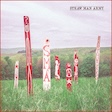 The first two Straw Man Army LPs have been irreplaceable punk beacons of the ’20s. This decade might not be the most volatile and violent one since punk rock has existed, but it also very well may be. It’s certainly the most distracted decade already, so any group that has the capacity to thoughtfully cut through the crap while presenting their rage-filled protests with coherence and sonic originality… that’s big! Earthworks follows the same template as Straw Man Army’s first two albums, as such: dextrous single-note guitar riffs, dual-tracked spoken-ish vocals, lyrics that speak directly of our fractured and inequitable moment in an updated form of peace-punk. I’m still indirectly reminded of Propagandhi too – it’s the vocal delivery and content, for sure, not the Fat-Wreck drumming – and “Extinction Burst”‘s main riff is pure Eddy Current, though for how many punk records come through these pages, Straw Man Army’s sound is in the top one-percent of uniqueness for sure. And even though their inspired combination of brittle guitars, nervous-tick drumming and somber vocals is immediately recognizable, they play around within their parameters, working with proggy riffs, pensive ballads, atmospheric elements, unexpectedly catchy choruses and a multitude of memorable one-liners that gel together to create another cohesive, powerful album unlike anyone else out there.
The first two Straw Man Army LPs have been irreplaceable punk beacons of the ’20s. This decade might not be the most volatile and violent one since punk rock has existed, but it also very well may be. It’s certainly the most distracted decade already, so any group that has the capacity to thoughtfully cut through the crap while presenting their rage-filled protests with coherence and sonic originality… that’s big! Earthworks follows the same template as Straw Man Army’s first two albums, as such: dextrous single-note guitar riffs, dual-tracked spoken-ish vocals, lyrics that speak directly of our fractured and inequitable moment in an updated form of peace-punk. I’m still indirectly reminded of Propagandhi too – it’s the vocal delivery and content, for sure, not the Fat-Wreck drumming – and “Extinction Burst”‘s main riff is pure Eddy Current, though for how many punk records come through these pages, Straw Man Army’s sound is in the top one-percent of uniqueness for sure. And even though their inspired combination of brittle guitars, nervous-tick drumming and somber vocals is immediately recognizable, they play around within their parameters, working with proggy riffs, pensive ballads, atmospheric elements, unexpectedly catchy choruses and a multitude of memorable one-liners that gel together to create another cohesive, powerful album unlike anyone else out there.
Tiikeri Tee Se Itse E.P. 7″ (Tiikeri)
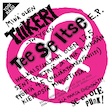 The members of Finland’s Tiikeri may have put in time in hardcore-punk groups, but Tiikeri is G-rated pop-punk fun, as friendly as it is enduring. With what sounds like tiny amps, a tiny drum kit and a distortion pedal they forgot to turn on, Tiikeri follows in the Chuck Taylor hi-top footsteps of The Dickies and The Undertones, affixing big punk badges to their thrifted cardigan sweaters as well as their leather jackets. They lean pretty hard on the tuneful, poppy side of the early punk-rock equation, verging on power-pop with simplistic songwriting and pogo-dancing energy. They don’t seem to have any concerns about proving their punk credentials, which is refreshing; the chorus of “Punkkari Oon”, for example, is like one chord away from matching the end of Green Day’s “Basket Case”, and “Rokenrollia” melds the classic pop-rock feel of Sheer Mag with the ’90s pop-punk delivery (and vocal style) of Wizo. If your punk needs to be bleak and suicidal, I completely understand – this Tiikeri is certainly not for you. For those of us willing to smile in public, however, it’d be hard to have a bad day when Tee Se Itse is spinning.
The members of Finland’s Tiikeri may have put in time in hardcore-punk groups, but Tiikeri is G-rated pop-punk fun, as friendly as it is enduring. With what sounds like tiny amps, a tiny drum kit and a distortion pedal they forgot to turn on, Tiikeri follows in the Chuck Taylor hi-top footsteps of The Dickies and The Undertones, affixing big punk badges to their thrifted cardigan sweaters as well as their leather jackets. They lean pretty hard on the tuneful, poppy side of the early punk-rock equation, verging on power-pop with simplistic songwriting and pogo-dancing energy. They don’t seem to have any concerns about proving their punk credentials, which is refreshing; the chorus of “Punkkari Oon”, for example, is like one chord away from matching the end of Green Day’s “Basket Case”, and “Rokenrollia” melds the classic pop-rock feel of Sheer Mag with the ’90s pop-punk delivery (and vocal style) of Wizo. If your punk needs to be bleak and suicidal, I completely understand – this Tiikeri is certainly not for you. For those of us willing to smile in public, however, it’d be hard to have a bad day when Tee Se Itse is spinning.
Tolouse Low Trax Fung Day LP (TAL)
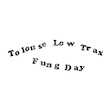 More gloriously damaged, genre-bending rhythmic propulsion from France, this time coming from one of its longer-running statesmen, Tolouse Low Trax. He’s been around for a minute, confusing and titillating dance-floors in equal measure, and this new album Fung Day is an excellent addition for fans both longstanding and recent. Slung low and creeping slow, his tracks here offer lopsided struts as appropriately-suited for a L.I.E.S. twelve-inch release as instrumentals for Danny Brown or Ultramagnetic MC’s. There’s always been a sense of criminally-ambiguous g-funk lurking within Tolouse Low Trax’s style, but the possibility of a slickly-polished groove is always tweaked by some strange sample, choice of rhythm pads or combination of both; imagine Jeff Mills raised on the records of Èl-G and Ghédalia Tazartès. I’m sure a track like “No Pick Up Version” sounds great on a well-rounded club system, the sparse percussion chattering like pigeons on a wire high above the hypnotic bass-line, as would the title track, which seems to answer the question of “what would a Beau Wanzer hip-hop instrumental sound like?”, but until I make the necessary sojourn to France for all the impeccably strange post-punk dance experimental electronic dub it has to offer, Fung Day is on my home stereo getting the job done.
More gloriously damaged, genre-bending rhythmic propulsion from France, this time coming from one of its longer-running statesmen, Tolouse Low Trax. He’s been around for a minute, confusing and titillating dance-floors in equal measure, and this new album Fung Day is an excellent addition for fans both longstanding and recent. Slung low and creeping slow, his tracks here offer lopsided struts as appropriately-suited for a L.I.E.S. twelve-inch release as instrumentals for Danny Brown or Ultramagnetic MC’s. There’s always been a sense of criminally-ambiguous g-funk lurking within Tolouse Low Trax’s style, but the possibility of a slickly-polished groove is always tweaked by some strange sample, choice of rhythm pads or combination of both; imagine Jeff Mills raised on the records of Èl-G and Ghédalia Tazartès. I’m sure a track like “No Pick Up Version” sounds great on a well-rounded club system, the sparse percussion chattering like pigeons on a wire high above the hypnotic bass-line, as would the title track, which seems to answer the question of “what would a Beau Wanzer hip-hop instrumental sound like?”, but until I make the necessary sojourn to France for all the impeccably strange post-punk dance experimental electronic dub it has to offer, Fung Day is on my home stereo getting the job done.
The Wolfgang Press A 2nd Shape LP (Downwards)
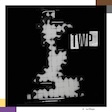 This happens every year, and I’ve learned to embrace it: mere days after finalizing my year-end best-of lists, I discover some other record that would’ve absolutely ranked at the top had I heard it earlier. I certainly wouldn’t have expected the first album in twenty-nine(!) years from alt-electronic group The Wolfgang Press to be the one that blows my mind in 2024, but it’s surprises like this that keep me excited to check out new music. A 2nd Shape is incredible! It’s extremely subdued, low-pulsing electronic music in the tradition of Suicide-worshipping post-punk, but so incredibly luxe, rich with personality and perversely catchy. Opener “The Garden Of Eden” hooked me immediately, establishing a loose, languid tempo with a six-negronis-deep vocal performance, hypnotic bass and psychedelic effects. “Sad Surfer” is how I wish modern Nick Cave sounded, but he’d never get over himself enough to do it. Throughout this magnificent album, I’m hearing Tin Man’s Wasteland (one of my favorite albums of all time) with the spooky-sexy atmosphere of November Növelet (one of my favorite musical duos of all time), the sarcastic showbiz pizzazz of Alan Vega and the sensual-industrial groove of Clock DVA, all churning up against each other to create something truly unique and thrilling. Michael Allen’s vocals just kill me, dripping with desperation, delivered over music that is fresher and more vibrant (and far more restrained) than much of The Wolfgang Press’s razor-edged Downwards Records contemporaries. I really can’t get over how good A 2nd Shape is… what’s next, SPK unexpectedly on Hospital Productions with the best new power-electronics album? Highest recommendation right here!
This happens every year, and I’ve learned to embrace it: mere days after finalizing my year-end best-of lists, I discover some other record that would’ve absolutely ranked at the top had I heard it earlier. I certainly wouldn’t have expected the first album in twenty-nine(!) years from alt-electronic group The Wolfgang Press to be the one that blows my mind in 2024, but it’s surprises like this that keep me excited to check out new music. A 2nd Shape is incredible! It’s extremely subdued, low-pulsing electronic music in the tradition of Suicide-worshipping post-punk, but so incredibly luxe, rich with personality and perversely catchy. Opener “The Garden Of Eden” hooked me immediately, establishing a loose, languid tempo with a six-negronis-deep vocal performance, hypnotic bass and psychedelic effects. “Sad Surfer” is how I wish modern Nick Cave sounded, but he’d never get over himself enough to do it. Throughout this magnificent album, I’m hearing Tin Man’s Wasteland (one of my favorite albums of all time) with the spooky-sexy atmosphere of November Növelet (one of my favorite musical duos of all time), the sarcastic showbiz pizzazz of Alan Vega and the sensual-industrial groove of Clock DVA, all churning up against each other to create something truly unique and thrilling. Michael Allen’s vocals just kill me, dripping with desperation, delivered over music that is fresher and more vibrant (and far more restrained) than much of The Wolfgang Press’s razor-edged Downwards Records contemporaries. I really can’t get over how good A 2nd Shape is… what’s next, SPK unexpectedly on Hospital Productions with the best new power-electronics album? Highest recommendation right here!

